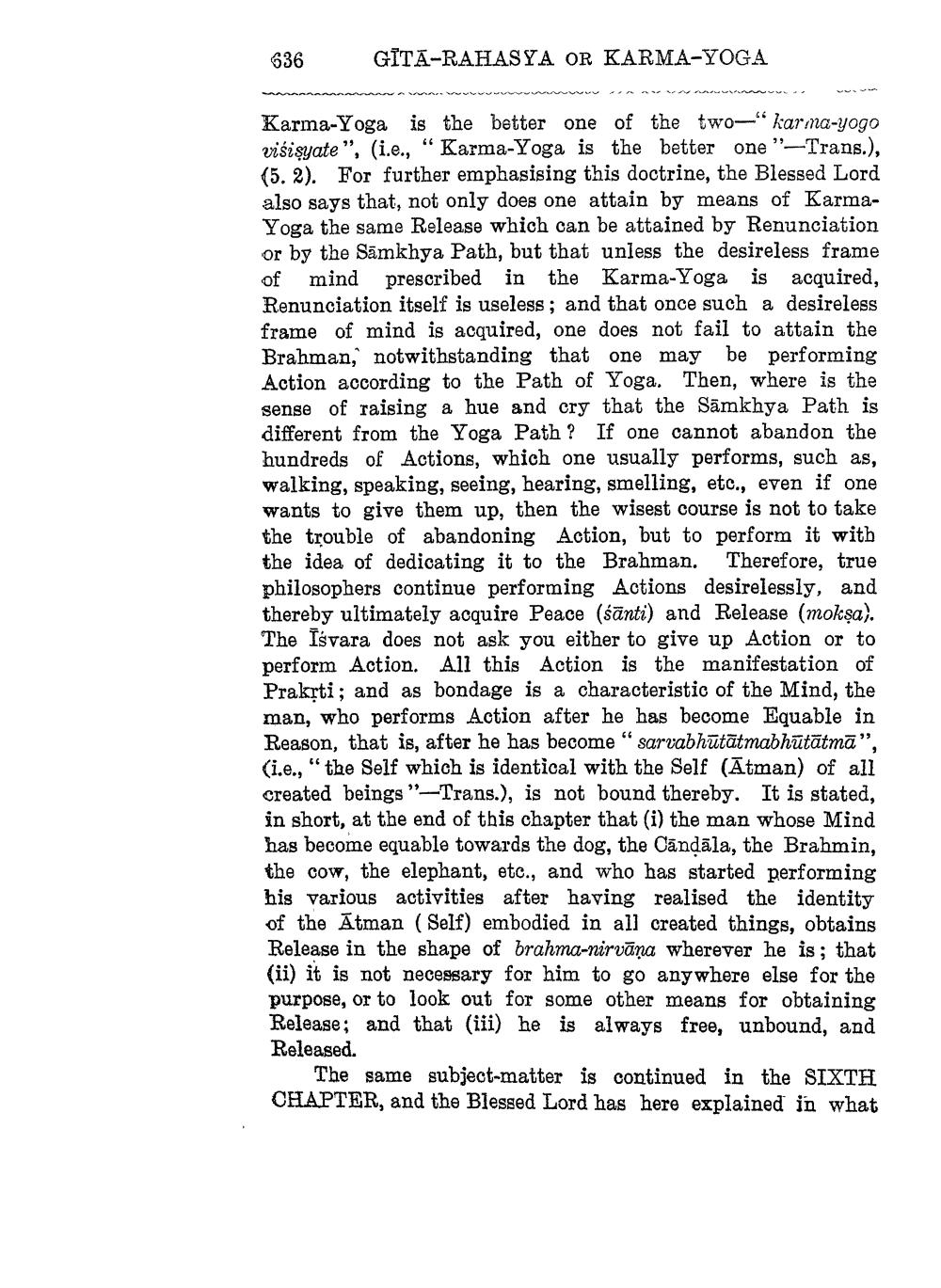________________
636
GITA-RAHASYA OR KARMA-YOGA
Karma-Yoga is the better one of the two-" karma-yogo višisyate", (i.e., " Karma-Yoga is the better one"-Trans.), (5.2). For further emphasising this doctrine, the Blessed Lord also says that, not only does one attain by means of KarmaYoga the same Release which can be attained by Renunciation or by the Samkhya Path, but that unless the desireless frame of mind prescribed in the Karma-Yoga is acquired, Renunciation itself is useless; and that once such a desireless frame of mind is acquired, one does not fail to attain the Brahman, notwithstanding that one may be performing Action according to the Path of Yoga. Then, where is the sense of raising a hue and cry that the Sāmkhya Path is different from the Yoga Path? If one cannot abandon the hundreds of Actions, which one usually performs, such as, walking, speaking, seeing, hearing, smelling, etc., even if one wants to give them up, then the wisest course is not to take the trouble of abandoning Action, but to perform it with the idea of dedicating it to the Brahman. Therefore, true philosophers continue performing Actions desirelessly, and thereby ultimately acquire Peace (śānti) and Release (mokşa). The Isvara does not ask you either to give up Action or to perform Action. All this Action is the manifestation of Prakrti; and as bondage is a characteristic of the Mind, the man, who performs Action after he has become Equable in Reason, that is, after he has become “sarvabhūtātmabhūtātmā". (i.e., “the Self which is identical with the Self (Atman) of all created beings”-Trans.), is not bound thereby. It is stated, in short, at the end of this chapter that (i) the man whose Mind has become equable towards the dog, the Cāndāla, the Brahmin, the cow, the elephant, etc., and who has started performing his various activities after having realised the identity of the Ātman (Self) embodied in all created things, obtains Release in the shape of brahma-nirvāna wherever he is; that (ii) it is not necessary for him to go anywhere else for the purpose, or to look out for some other means for obtaining Release; and that (iii) he is always free, unbound, and Released.
The same subject-matter is continued in the SIXTH CHAPTER, and the Blessed Lord has here explained in what




